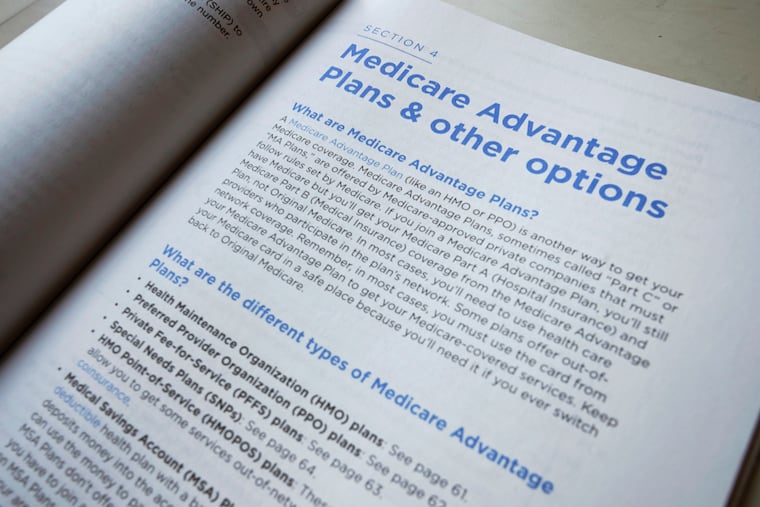Medicare’s fall enrollment period is almost here. What’s new for 2020?
Medicare's fall enrollment period runs Oct. 15 through Dec. 7. What's new this year?

Medicare’s fall enrollment period, which runs from Oct. 15 through Dec. 7, is a time for people to review their coverage to be sure it’s still right for them and make any needed changes.
People with traditional Medicare who purchase a Part D plan to cover their prescription drugs may want to check that their current plan still offers the best coverage for their medications. That’s especially true if they are taking different medicines, but plans can move drugs to different coverage levels from year to year, so never assume your current coverage will continue.
Medicare Advantage plans, which are managed by private insurers rather than the government, may also change from year to year.
This season, here are some new developments to Medicare that people should know about as they review their coverage.
New CMS Plan Finder tool
People who have shopped for Medicare coverage in the past may be familiar with the Plan Finder tool, the primary resource to compare cost and coverage for Medicare Advantage and Part D plans.
The Centers for Medicare and Medicaid Services (CMS) have completely overhauled the website for 2020 enrollment, in response to repeated calls for updates to address flaws. It has retained some of its popular features, such as the ability to enter the exact medications you take to see how out-of-pocket costs will compare under different plans.
But enrollment specialists are worried some changes will be confusing for people who are used to the old website.
“The look and the feel and the function are going to be completely different. It’s going to be a different world,” said James Long, a broker-manager with Young’s Insurance Services Inc. in Norristown.
One change enrollment specialists are concerned about is a rule that people must create an online account in order to save their information and continue their search later. Previously, the website allowed people to save searches using an anonymous 10-digit identification number, which meant that people could enlist the help of a friend, relative, or professional without giving that person access to their personal identification information.
The new tool’s late August release means that enrollment specialists, including State Health Insurance and Assistance program workers, have limited time to learn how to use the revamped website before a busy enrollment time.
» READ MORE: Ten questions to ask during Medicare open enrollment
Extra benefits in Medicare Advantage plans
Medicare Advantage plans often offer benefits beyond what Original Medicare covers, such as vision and dental. Silver Sneakers, a gym membership program, is among the most popular of these benefits. In recent years, the federal government has expanded the range of extras Medicare Advantage plans can offer to include health benefits specific to a particular condition — for example, offering podiatry coverage to members with diabetes. Beginning in 2020, the range of allowed benefits is expanding to include needs such as transportation to medical appointments, shower grab bars, meal services, and home improvements.
But plans will not receive any additional federal funding to offer such benefits, according to the Robert Wood Johnson Foundation, which in September published a report based on interviews with 10 Medicare Advantage plans. Meal services and adult day services were among the benefits the plans said they were considering — a few already offered these services to some members based on medical need and planned to expand their availability.
These extras may be appealing, but it’s still paramount to be sure the health services coverage itself is right for you.
“On the one hand, hey, you might actually get a real benefit that could help you out. But people have to be aware that there are few restrictions on how plans can market this stuff.... These benefits are marketed, but it’s not guaranteed you’ll be eligible,” said David A. Lipschutz, associate director and senior policy attorney for the Center for Medicare Advocacy, a patient advocacy organization.
Medigap change
Medigap plans are supplemental coverage that people with Original Medicare may purchase to help cover their out-of-pocket costs. Beginning Jan. 1, people newly eligible for Medicare will no longer be able to purchase Medigap plans that cover the Part B deductible, which is $185 this year. Anyone who currently has a supplemental plan with "first-dollar coverage” can keep it. And anyone born before 1954 will always be eligible to buy that type of plan even if they don’t currently have one — so long as insurers continue to offer them. It’s unclear whether the rule change will prompt insurers to phase out those plans.